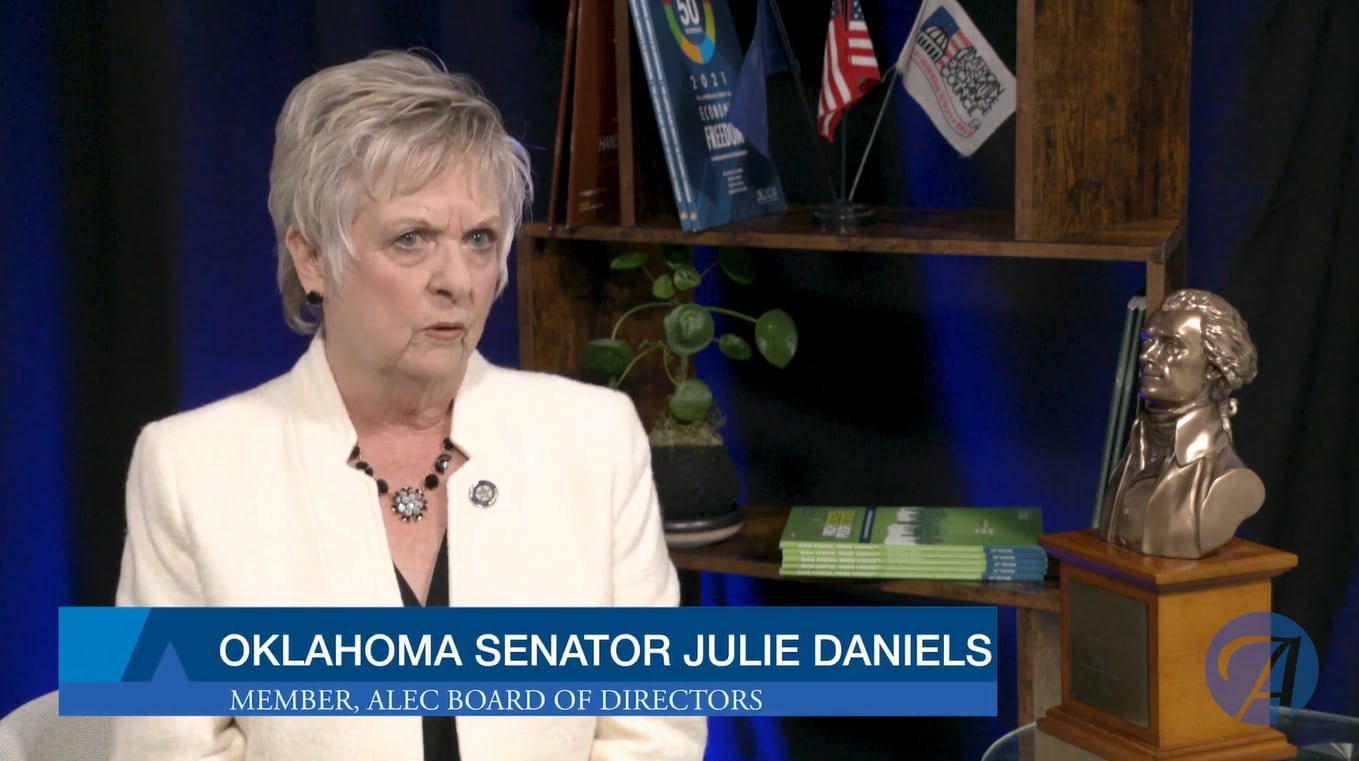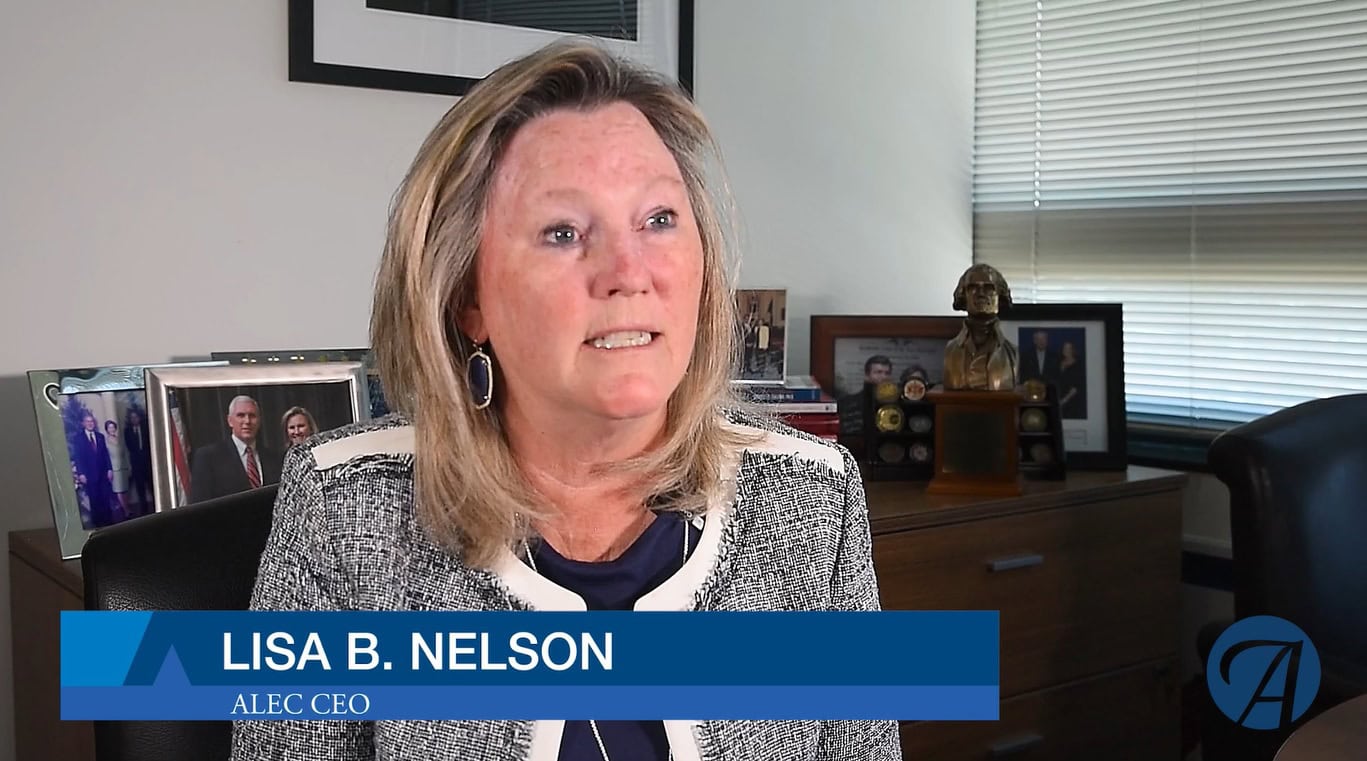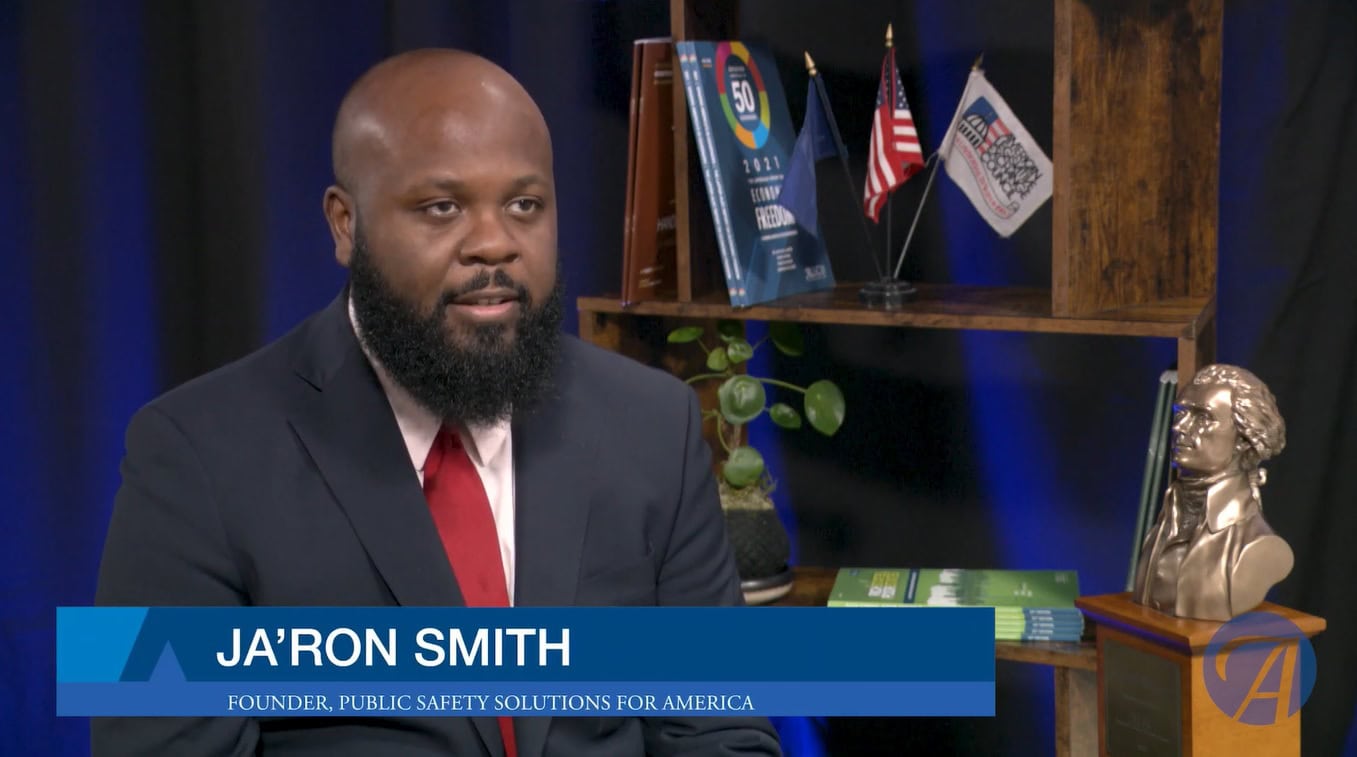ALEC’s Impact on Criminal Justice Reform
Investing in police and community relations — that’s the future of justice reform, and ALEC’s going to be a lead organization on that.
Looking for Episode 3: ALEC’s Success on Civil Justice Reform? Find it here.
The fourth episode in the ALEC 50th anniversary video series, “Criminal Justice Reform,” features ALEC Board and Criminal Justice Task Force member, Oklahoma Senator Julie Daniels, Criminal Justice Task Force Director Nino Marchese, founder of Public Safety Solutions for America and former deputy advisor to President Donald Trump, Ja’Ron Smith, and ALEC CEO Lisa B. Nelson, all discussing the impact ALEC’s Criminal Justice Task Force has had on our criminal justice system throughout the years.
For over a decade, ALEC has led the way in tackling innovative ways to reform our criminal justice systems to make them more effective in increasing public safety, increasing opportunity and delivering justice, showing what truly effective conservative justice reform looks like. ALEC’s Criminal Justice Task Force has produced over 80 model policies state legislators have looked to for guidance and on a variety of issues —from policing reform to offender re-entry programs and everything in between.
As Senator Julie Daniels explains:
ALEC is a very substantive organization. By the time they hammer out and approve a model policy in a task force, like criminal justice, it’s really a discussion among legislators from all over the United States.

Texas is a state which took advantage of these resources to enact reforms in their state, but also led by example to inspire federal reform efforts. Representative Jerry Madden in Texas led several efforts ALEC was behind, including alternatives to incarceration, reducing mandatory minimum sentences, other sentencing reform and recidivism reduction efforts, and even addressing civil asset forfeiture laws. These efforts spread throughout the states and led the way for the First Step Act less than a decade later.

According to ALEC CEO Lisa B. Nelson:
We took all of that positive policy that came out of the states, and brought it to Washington, and were able to work with the White House across partisan lines to get a bipartisan bill passed at the federal level.

As Ja’Ron Smith explains:
We hadn’t had any type of legislation around our justice system since the mid-’90s. It took almost 30 years for us to get to that place. Since the First Step Act has become law, we’ve reduced recidivism overwhelmingly. We learn a lot from ALEC’s leadership.
If we lower recidivism rates, we’re helping prevent crime in the future. And that’s what we learned from the state policy that ALEC presented. Investing in police and community relations — that’s the future of justice reform, and ALEC’s going to be a lead organization that’s involved with that.

The motivation behind many of the reform efforts ALEC’s Criminal Justice Task Force members address has remained consistent since the Task Force was conceived: reduce crime, increase fairness, and lower the amount of people caught in the cycle of a criminal lifestyle. Punishment and accountability for those who break the law is non-negotiable and has always been a tenant of our Task Force to maintain law and order. Additionally, Task Force members look to long-term approaches in reducing criminal activity and preventing it from ever occurring. Creating opportunities to help individuals remove themselves from a criminal environment are in everyone’s interest and have proven to be key.
We don’t want them to re-offend. ALEC’s been very active in making sure people are properly trained before they come out of the prison system.
— Senator Julie Daniels
Looking forward, and continuing to battle the crime waves spurred from the COVID-19 pandemic, ALEC’s Criminal Justice Task Force will focus on ensuring law enforcement have the resources needed to focus their efforts efficiently to reduce crime in the short and long terms, while continuing the work on the various components of the criminal justice system it has for over a decade now.
To summarize, ALEC CEO Lisa B. Nelson said it best:
We strive for a more effective criminal justice system, one that is fair and just, but one which cycles fewer individuals through it because criminal activity has been reduced. That’s what ALEC has helped the states accomplish. It’s why we have stood by our principles for 50 years, and we’ll continue to do so.
